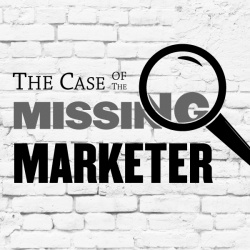The Case of the Missing Marketer
 For the first 20 years of its history, Purdue University’s Center for Food and Agricultural Business offered a program called “Marketing for Field Marketers.” For three or four days, salespeople would come to the Purdue campus and learn how to approach the marketplace more effectively. While the focus of this program was on marketing, one of the core concepts was the idea that salespeople in the field should approach their territories with a marketing perspective.
For the first 20 years of its history, Purdue University’s Center for Food and Agricultural Business offered a program called “Marketing for Field Marketers.” For three or four days, salespeople would come to the Purdue campus and learn how to approach the marketplace more effectively. While the focus of this program was on marketing, one of the core concepts was the idea that salespeople in the field should approach their territories with a marketing perspective.
The field marketing concept really caught on, and many organizations identified their field sales forces as “field marketers.” Field marketers were not just salespeople. They brought value to the marketplace, thought about the best ways to deliver those products, tied pricing to value rather than competition, and aligned their sales messages with other marketing efforts in the marketplace. These are fantastic lessons for sellers and every salesperson today should strive to do those same things.
A big difference between the start of the center in the 1980s and today, though, is that sales is no longer a dirty word. Part of the appeal of field marketing was that it positioned the seller as distinct from “sales,” which was a dirty five-letter word. In those days, when we asked students on our campus to describe what a salesperson did, they used words like “manipulate” and “slimy.” Today’s students say a salesperson “helps people” and “demonstrates value.” We’ve come a long way. Sales used to be misunderstood, and today we have a much clearer sense of what good selling is.
But here’s the thing: While we are comfortable with the term salesperson today, it is marketing that we often have misperceptions about. Marketing is often thought of as synonymous with advertising. Through consolidation at the retail and dealer levels, we have many larger organizations now who in the past may have been content to leave marketing to the “big guys,” mostly meaning manufacturers.
Most manufacturers have product managers who are charged with estimating demand, segmenting target customers, developing brands that represent the right messaging to those target customers, and the mechanisms to communicate those. Product managers and their marketing counterparts also think about pricing strategies and how to move those products through their channel partners.
In my humble opinion as an outsider looking in, though, there are often disconnects between those efforts. Those disconnects don’t result from conflict. Relationships between manufacturers and distributors are highly cooperative and very positive from my perspective. But I’m not sure we have a real understanding about what the roles of marketers are in a sales organization. If we did, I think sellers would do a better job of capturing information about customers and using that information to help marketers at both the distributor and manufacturer levels make better decisions. I think reliance on pricing programs wouldn’t be as high as it remains today. I think innovation around information and services would be higher than it is. I recognize that I live in an “ivory tower” and can be pretty idealistic, but I think we’re leaving real potential on the table.
Rather than just describe a problem though, I have a solution. I think organizations need to invest in marketing the way we once invested in selling. Selling is still critical today. I’ve made my career in that area and don’t intend to change that. But I see so much more that sellers could be doing to implement marketing in the field more effectively. Anyone who hopes to be in sales leadership or marketing should have expertise in the best practices for implementing marketing at the field level. I won’t go so far as to say that we need to bring back field marketing—we need good salespeople—but I will say we need more marketing ability in agribusiness organizations.
Market Planning for Agri-Marketers
Check out our upcoming programs and exceed your professional development goals! Position yourself to excel in your career by attending one of our professional development workshops. Each educational program focuses on different business topics and concepts related to the agribusiness industry you serve, including: marketing, sales, finance, talent management and strategy. Not sure which one is right for you? Let’s chat!
Tags: Agribusiness, Field Marketing, Marketers, Marketing, Sales, Sales People, Selling
RELATED POSTS:
Optimizing Sales Management: Knowledge, Coaching and Continuous Improvement
While we used to think that exceptional salespeople possessed an innate gift, recent data suggests the impact of today’s sales managers in nurturing and refining this gift to unlock its fullest potential.
A great moment for value-based sales in agribusiness
Value-based sales can empower companies to craft compelling value propositions, understand the customer’s business model and effectively communicate to stakeholders.
How can big data empower the development of new products?
Data is one of the most powerful resources for a company. It enables accurate decision-making and minimizes risk, ensuring greater revenue and sustainable growth.
